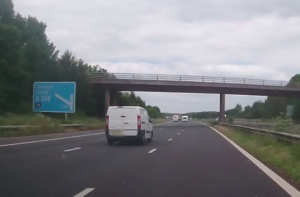The backlog of roads repairs in Argyll and Bute has reached more than £100 million, according to a council report.
Members of the authority’s environment, development and infrastructure committee discussed the alarming figure at a meeting earlier this month – as the council’s head of roads admitted the position facing him and his staff is far from ideal, reports the Helensburgh Advertiser.
South Kintyre councillor Donald Kelly said that roads in central Campbeltown were in need of attention, but were being left untouched, while other roads in a better state were being repaired.
Jim Smith, the council’s Head of Roads and Amenity Services, responded that the authority had a ‘stitch in time’ approach which it hoped would avoid greater expenditure later.
The debate took place as a report revealed that the council has a backlog of road repairs worth £112 million – as well as further backlogs for footways, structures and street lighting and furniture.
Mr Smith said: “It is difficult to please everybody. We have over £100m of backlog in road maintenance and in an ideal situation we would have every road in an ideal condition – but that’s not the situation of course.”
“What we aim to do is get the best possible rate of return for our investment in the road network – and that sometimes means carrying out treatment on red roads, but also to amber ones.
“We have a ‘stitch in time’ type of approach. If we spend £100 today, it might negate the need to spend £1,000 next year. We do have some roads showing as red, but the risk is not felt to be great. It might not seem ideal but it is getting the best rate of return.”
A report published in advance of the meeting said: “A decade of capital investment has provided almost steady state RCI [road condition indicator] condition through a planned and prioritised programme of works. The maintenance backlog for carriageways is £112m.
“Revenue funding has reduced to the point where almost all activities are undertaken on a reactive basis, effectively when assets stop functioning. Road maintenance services are stretched to breaking point with resources being swallowed up by intensive reactive maintenance demands,” said the report.
























